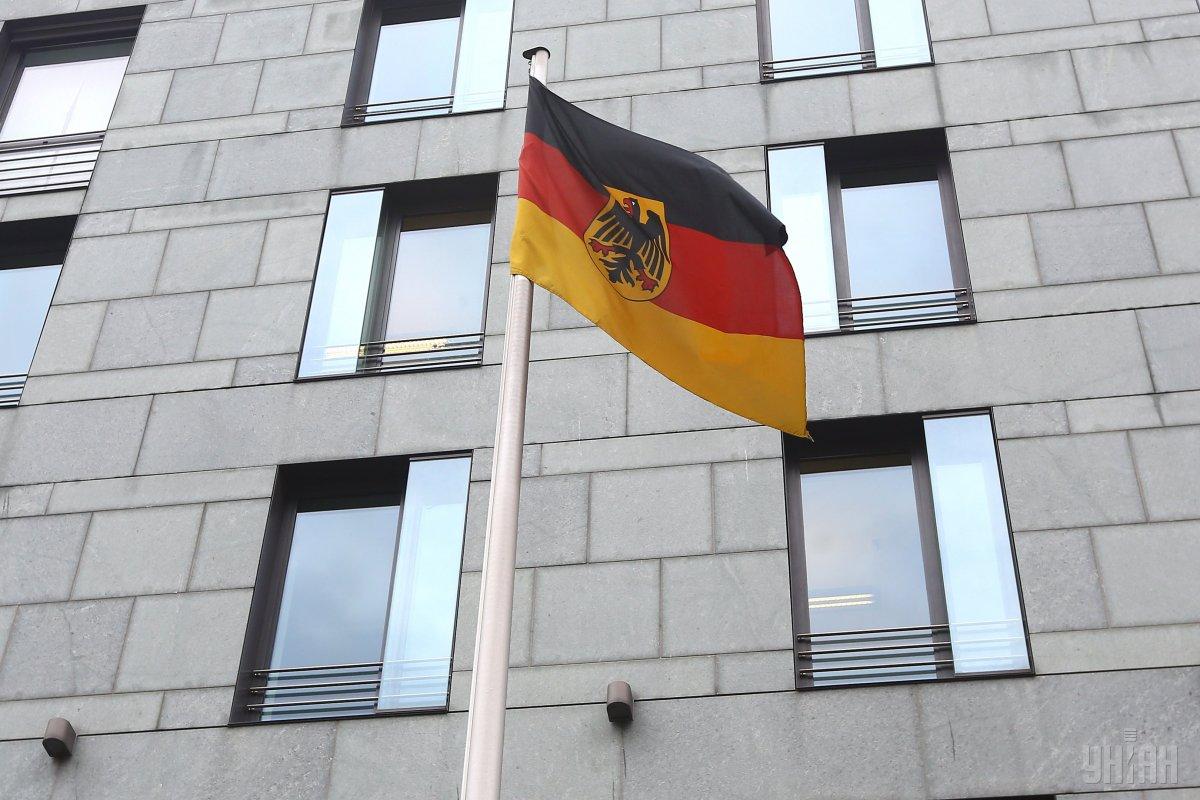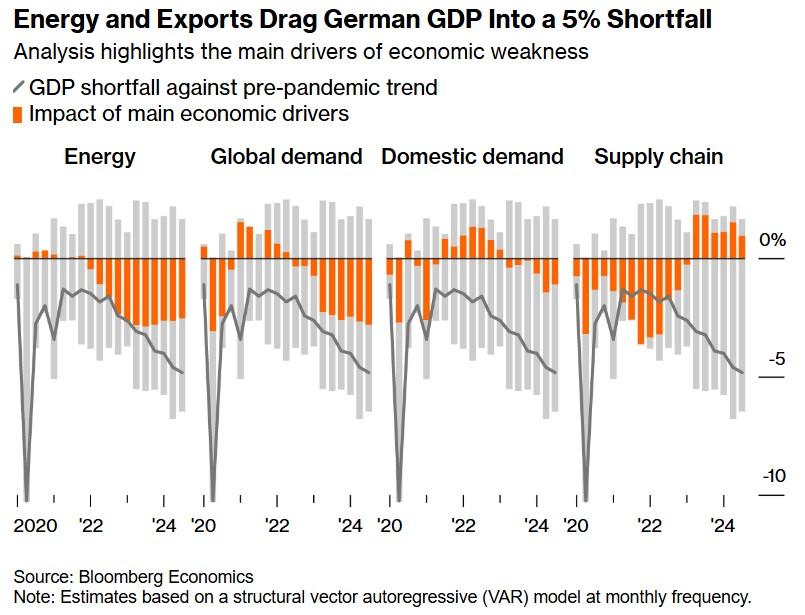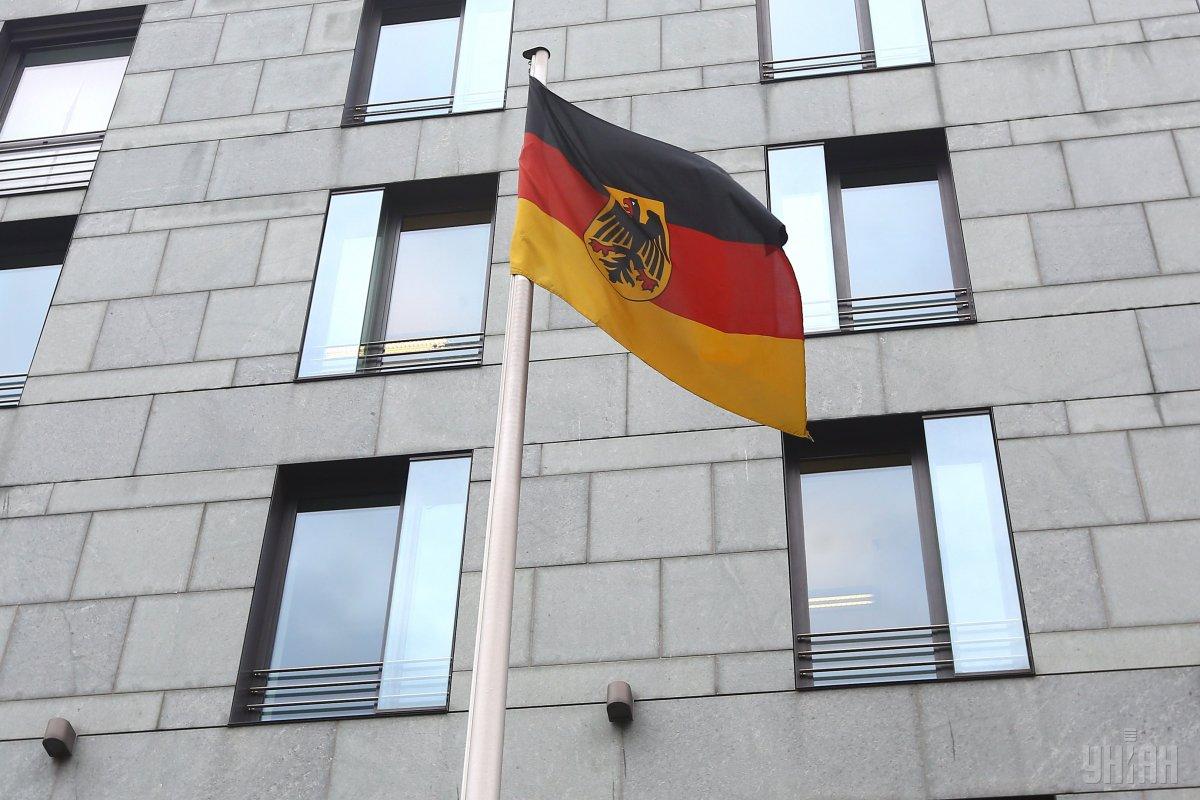“High energy prices and reduced exports left German households €2,500 poorer.”, — write: www.unian.ua
High energy prices and reduced exports left German households €2,500 poorer.
 It is noted that Berlin still has a chance to climb out of the economic hole / photo UNIANAfter five years of stagnation, Germany’s economy shrank by 5% compared to pre-pandemic growth rates. Much of the deficit will be difficult to recover due to structural shocks, particularly in the energy sector and the automotive industry.
It is noted that Berlin still has a chance to climb out of the economic hole / photo UNIANAfter five years of stagnation, Germany’s economy shrank by 5% compared to pre-pandemic growth rates. Much of the deficit will be difficult to recover due to structural shocks, particularly in the energy sector and the automotive industry.The publication Bloomberg writes that the decline in national competitiveness means that each household will become poorer by approximately 2,500 euros per year.
“Germany is not going to collapse right away. That’s what makes this scenario so terrifying,” said Amy Webb, founder and executive director of the Future Today Institute. “This is a very slow, very protracted decline. Not of the company, not of the city, but of the whole country, and Europe will follow it.”
It looks like this: Germany is losing more and more energy-intensive industries and exports are falling as companies cut domestic investment. As living standards decline, voters look for scapegoats and social tensions drive away the foreign talent the country desperately needs. A poisonous cocktail of caution and discontent will then sweep across Europe.
 “Everybody’s life gets progressively worse and worse toward the end of their life,” Webb says.
“Everybody’s life gets progressively worse and worse toward the end of their life,” Webb says.
Years of bad decisions and bad luck have destroyed Germany’s economic model just when the rest of Europe needs its industry to help the region keep pace with China, deal with Russia’s war in Ukraine and respond to US isolationist sentiment.
“The competitive position of German industry has deteriorated,” said Joachim Nagel, President of the Bundesbank. “Growing foreign markets do not provide the impetus for growth as it was in the past.”
The list of problems is getting longer and longer, and Germany’s growth potential has shrunk to just 0.4%. As a result, Germany needs to spend more to regain competitiveness. According to Bloomberg, to catch up with other developed economies, the country will have to increase its annual investment in infrastructure and other public goods by about a third to 160 billion euros. This growth is equivalent to more than 1% of GDP.
But not everything is so bad. Germany has the lowest debt ratio of any G7 country, giving it room to spend if the political will is there. In addition, economists predict a moderate recovery of the economy in the near future.
Germany’s problems do not go unnoticed. Bantleon economists predict that the country’s once famous automobile industry will lose its market share and accelerate the transfer of production abroad. In the next 10 years, this sector is expected to lose up to 40% of added value.
Problems of the German economy – the latest newsExperts have found out that more and more Germans are “climbing” into debt. The reason for the economic problems is considered to be the curtailment of support from the state and the constant decrease in purchasing power against the background of inflation and high interest rates.
At the same time, only in the first half of 2024, about 11,000 German companies declared bankruptcy, which is the highest figure in almost 10 years.
On October 14, Bloomberg wrote that Berlin is experiencing a moderate recession, which indicates serious difficulties in the largest economy.
You may also be interested in news:
- Sanctions against the Russian Federation: Britain targeted the illegal trade in gold
- The European Union agreed on the 15th package of sanctions against Russia
- Ukrainian intelligence has published a list and photos of vessels of the “shadow fleet” of the Russian Federation
